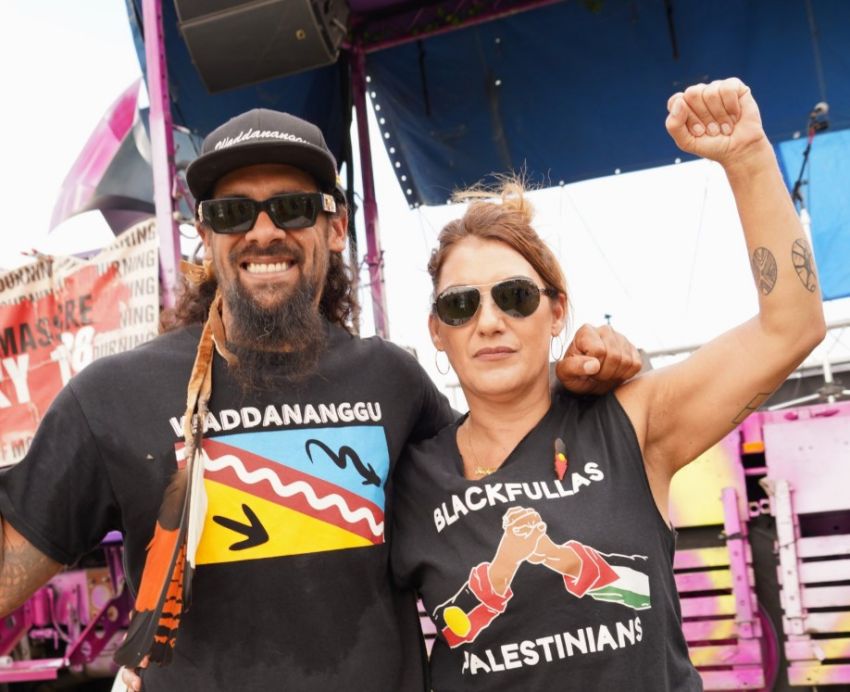
Gunnai, Gunditjmara and Djab Wurrung independent Victorian Senator Lidia Thorpe told a rally of several hundred on federal Parliament lawns on November 28 that the First Nations and climate movements need to unite to win their just demands for land and a safe climate.
“We need to unite the climate movement with the First Nations movement. We all need to be in solidarity together, and we are rising, stronger than ever before,” Thorpe said.
Thorpe told the rally she had the “day off” because she had been suspended from the Senate, her workplace, for calling out racism.
Thorpe was suspended after she called out Pauline Hanson’s racism the previous day.
“This is a very racist, divided country,” Thorpe said. “There will be no peace without justice. We want peace and we want our land back.”
Thorpe’s protest had been organised to promote her private members bill, but it joined with the Canberra Wave of the Rising Tide People’s Blockade, which began in Muloobinba/Newcastle and continued on to Parliament.
Thorpe’s bill, which was co-sponsored by Western Australian Senator Fatima Payman, aims to change the law on genocide to ensure justice for all victims and survivors of genocide, here and overseas.
Currently, the federal attorney-general has the power to veto any prosecution of genocide, war crimes and other crimes against humanity from proceeding in courts.
Other speakers included Aboriginal representatives from Western Australia, campaigning in support of six missing Indigenous boys from the Kimberley region. They are demanding action on the human rights of Indigenous youth from the federal and WA governments.
Mussa Hijazi, a Palestinian-Australian lawyer from the ACT, said: “The long history of genocide against Aboriginal people in this country has been hidden for too long. It is the same in Palestine today.
“Our task is to hold the politicians to account. It’s up to us to speak up about the brutal history of genocide in this country and in Palestine right now,” Hijazi said.
Representatives from the Sikh nation, the colonised people of West Papua and Kanaky/New Caledonia also spoke about their own struggles for self-determination, while also expressing their solidarity with the struggle of First Peoples here.